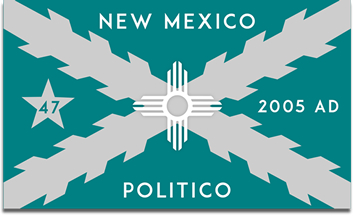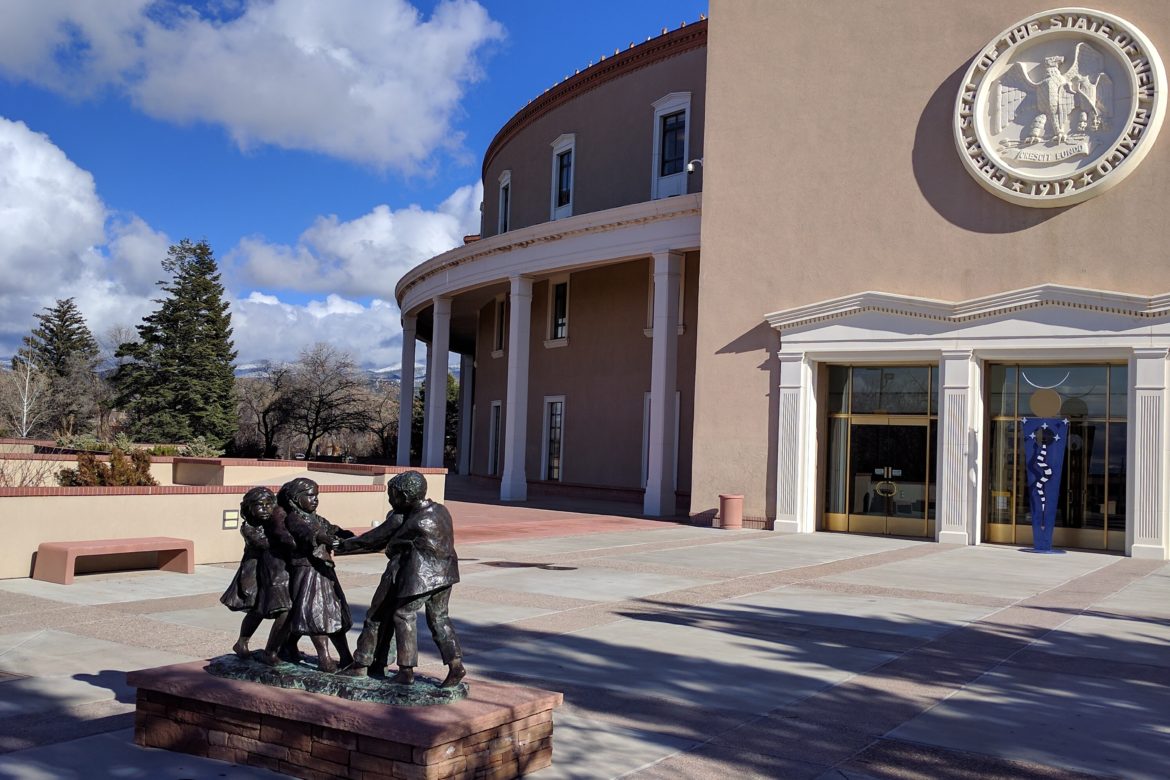Santa Fe – The first session of the 54th Legislature wrapped up this weekend with the Democratic majority attempting to (and largely succeeding) in maximizing the sixty day session by moving legislation at an unrelenting pace, especially in the House chamber controlled by Speaker Brian Egolf.
While Governor Grisham and her fellow Democrats didn’t get everything on their wish list, they still managed to score some major legislative victories that will have significant implications for the state for years to come. Broken into policy areas, here is a list of notable takeaways from the session:
Energy
The piece of legislation with one of the greatest long term consequences was the Energy Transition Act, legislation supported by almost every environmentalist and progressive organization as well as PNM, the state’s largest utility. As I have written about before, this will unquestionably increase the cost of generating electricity for PNM and in essence be a regressive tax on low and fixed income New Mexicans. Those arguing that renewable energy will reduce energy costs are either blissfully unaware of the economic reality or purposely ignoring an inconvenient truth: adding energy sources such as wind and solar that have a low capacity factor (a metric of electrical energy output over a given period of time) means higher carbon emissions and higher energy costs. And to make matters worse, when cheap natural gas produced from the U.S. fracking boom inevitably comes to an end, electricity prices will increase even more (natural gas plants are needed to produce power when the wind doesn’t blow or the sun doesn’t shine).
Also of note legislators approved a joint resolution that will amend the state constitution to change the Public Regulation Commission into a three member organization, who will be appointed by the governor rather than elected by voters.
Lawmakers to their credit did not advance bills advocated by some that threatened to increase the royalty rate or put a moratorium on hydraulic fracturing permits for four years, actions that would have had a major impact on the state’s finances.
Economy
Bills certain to have an economic impact include the minimum wage increase and so-called “tax reform” bill. The state minimum wage increase will gradually increase from $7.50 to $12 an hour by 2023. Though the increase matches the governor’s campaign promise, it does it at a slower pace and maintains a lower wage for tipped workers. Still, the higher wage will negatively impact the state’s rural areas by reducing both overall employment and opportunities for lower skilled workers. Businesses in municipalities such as Las Cruces that have previously approved minimum wage increases (to lower levels than the state mandated increase) are warning of impending negative effects due to the forced wage increase.
The Democrat-controlled Roundhouse managed to pass tax increases during a record surplus year, surpluses that are anticipated to continue in the near future as the Permian oil boom continues. Tax increases include an internet sales tax, higher taxes on motor vehicle purchases, and a reduction in capital gains taxes that can be deducted. There is no doubt that the state is in desperate need of serious tax reform, but instead of structural changes to the tax code the status quo was largely intact, with minor “around the edges” tweaks that will let Democrats claim they made the tax code more progressive. Additionally, the influence and power of unions over our leaders in the Roundhouse is unmistakable when legislation quickly passed that will stop counties from enacting “right-to-work” ordinances.
Education
Although the governor was rebuked by the Senate in her push to tap the state’s permanent fund, the Roundhouse did pass the expected increase in public education spending. The roughly $500 million increase in spending is significant, but it remains to be seen if it will deliver the so-called “moonshot” promised by the governor and her allies; while we spend significantly more per pupil than our neighboring states our schools continue to underperform.
Gun Control
The governor caused a stir in rural parts of the state when she signed legislation earlier this month to require background checks on gun sales by unlicensed vendors and at gun shows. When 27 of the state’s 33 counties pass resolutions unhappy with Santa Fe’s push for gun control, it exemplifies the divide between urban and rural New Mexicans. It’s worth mentioning that while the NRA is frequently vilified by the Left, the NRA gave a paltry $21k to candidates last year compared to Michael Bloomberg’s group Everytown for Gun Safety, which donated almost $400k during the same period.
Abortion
Speaking of that urban/rural divide, pro-abortion groups and supporters were stunned when a group of legislators (including eight Democrats) stopped an attempt to codify the 1973 Roe v. Wade decision that legalized abortion. Though it remains to be seen if this energy and motivation by more rural and conservative voters endures beyond the session, it shows the purported mandate by Governor Grisham and others to take the state further and further to the left is not supported by areas outside New Mexico’s urban centers. It is going to be interesting to watch if progressive challengers, financed by powerful out of state groups, emerge and are successful in defeating the more conservative Democratic legislators who dared to defy their agenda.
Elections
In one of the more boneheaded pieces of legislation this session, legislators passed a bill to get rid of the Electoral College by electing the U.S. President by popular vote. If enough states sign on to this idea it will make small, rural states like New Mexico irrelevant in future presidential elections. Also of note in election reform, legislation passed that will allow voters to register during early voting and on Election Day, instead of the current cutoff of 28 days before an election.
Film
The governor is expected to sign a bill that will increase the yearly film rebate cap from $50 million to $110 million and pays off $225 million of the backlog in film tax credits (the current backlog is estimated at around $300 million). Governor Grisham wanted to remove the cap completely but the resulting compromise still gave her an over 100% increase in film production subsidies.
Hemp & Marijuana
Due to a veto by Governor Martinez that was overturned by the state Supreme Court, the first legal harvest of hemp will take place this year. This year’s session saw passage of a $100k appropriation to NMSU for hemp research, so this seems to be the beginning of a promising new agricultural industry for the state. Furthermore, though the Senate killed an attempt to legalize recreational marijuana in the state (bipartisan legislation that attempted to make New Mexico the first state to set up its own state-run pot shops), legislation was passed that removed criminal penalties for cannabis possession. Governor Grisham promised to add recreational marijuana legalization to the 2020 Legislative Session.

